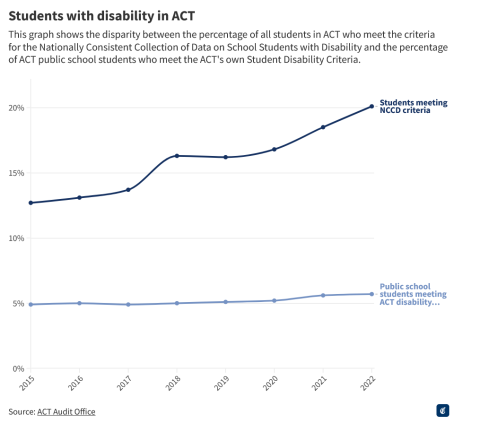
There is never a dull moment in the Sugars-Daniel's "neurodivergent house", mum Rhi Sugars laughs.
But the struggle many Canberrans have in getting themselves or their child an autism or attention deficit hyperactive disorder (ADHD) diagnosis is no laughing matter, she says.
The mother-of-two lives in Lake Bathurst and works in Queanbeyan.
Her eight-year-old son Dallas waited four years to be assessed for autism in the ACT before she sought help from a private Sydney service, Ms Sugars said.
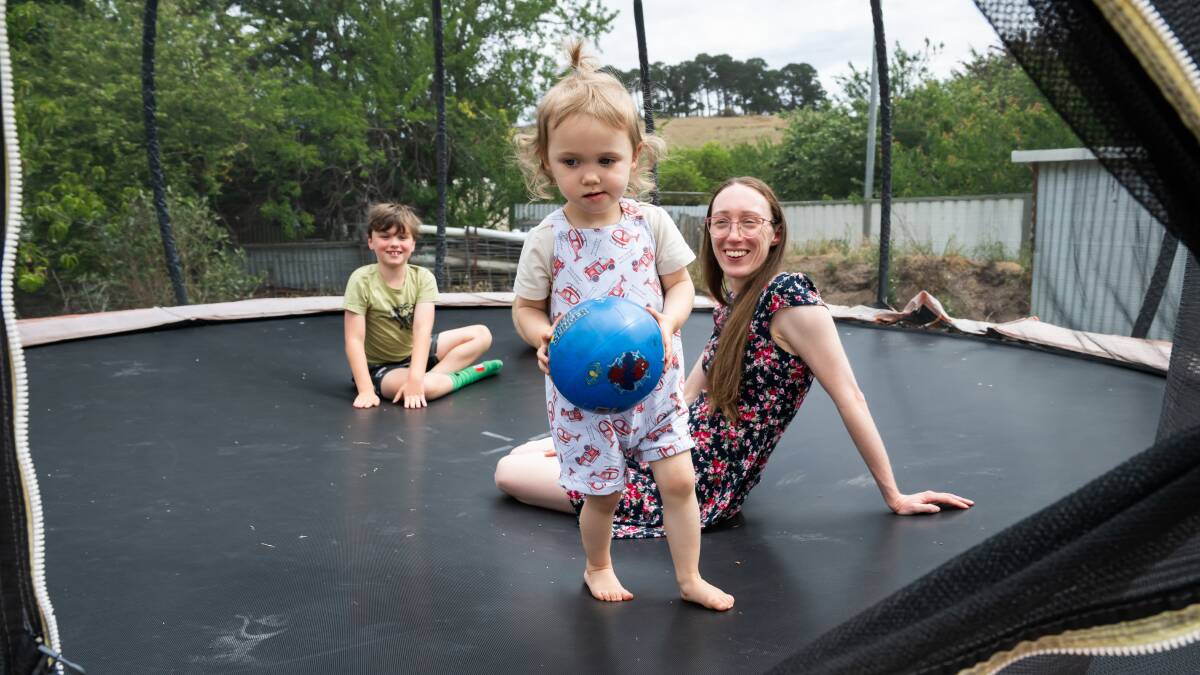
Rhi Sugars with her children Evanna Daniel, 2, and Dallas Daniel, 8. Picture by Elesa Kurtz
Long time to wait
Ms Sugars now helps other people in the ACT and NSW navigate the system.
She estimated that ACT residents wait about 12-18 months to get an autism assessment through the public system, but said NSW residents around Canberra wait for years.
"When we've got families choosing whether or not they can afford food or an assessment, that's a huge issue. No family should be put in that position," Ms Sugars said. NSW residents access services through NSW Health.
"We've have children who are, they're being traumatised because they don't fit into the world around them.
"By the time they're diagnosed, they've already had all these traumatic experiences and they carry that trauma with them."
The ACT government offers autism assessments for local children up to 12 years of age.
There were 164 children waiting to be assessed on September 29.
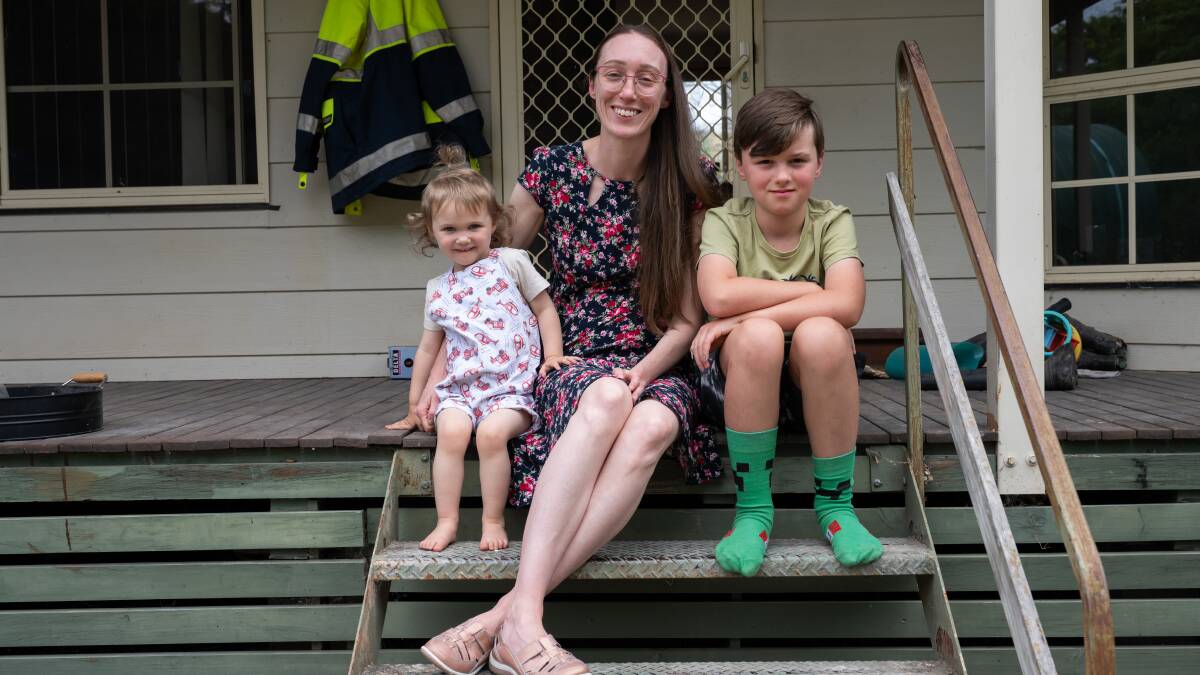
Rhi Sugars with her children Evanna, 2, and Dallas Daniel, 8. Picture by Elesa Kurtz
Children must be referred by a paediatrician or paediatric psychiatrist, which may also require a referral from a general practitioner.
There are no ACT of federal government services offering ADHD assessments for children or adults.
A Community Services Directorate spokesperson said "the 2023-24 budget also contains $1.357 million to recruit four psychologists to expand the Autism Spectrum Disorder (ASD) assessment service".
All booked out
Many Canberra paediatricians, child psychologists and psychiatrists have closed books, if families can afford them at all.
The Psych Hive in Deakin, which has many clients with autism and ADHD, has a six-month waitlist for assessments, clinical psychologist Brianna Thomas said.
"Most child psychology services in Canberra have closed their waitlist," she said.
"We have a big awareness in Canberra of mental health and neurodiversity, so a lot of people are seeking services, but there's just not enough."
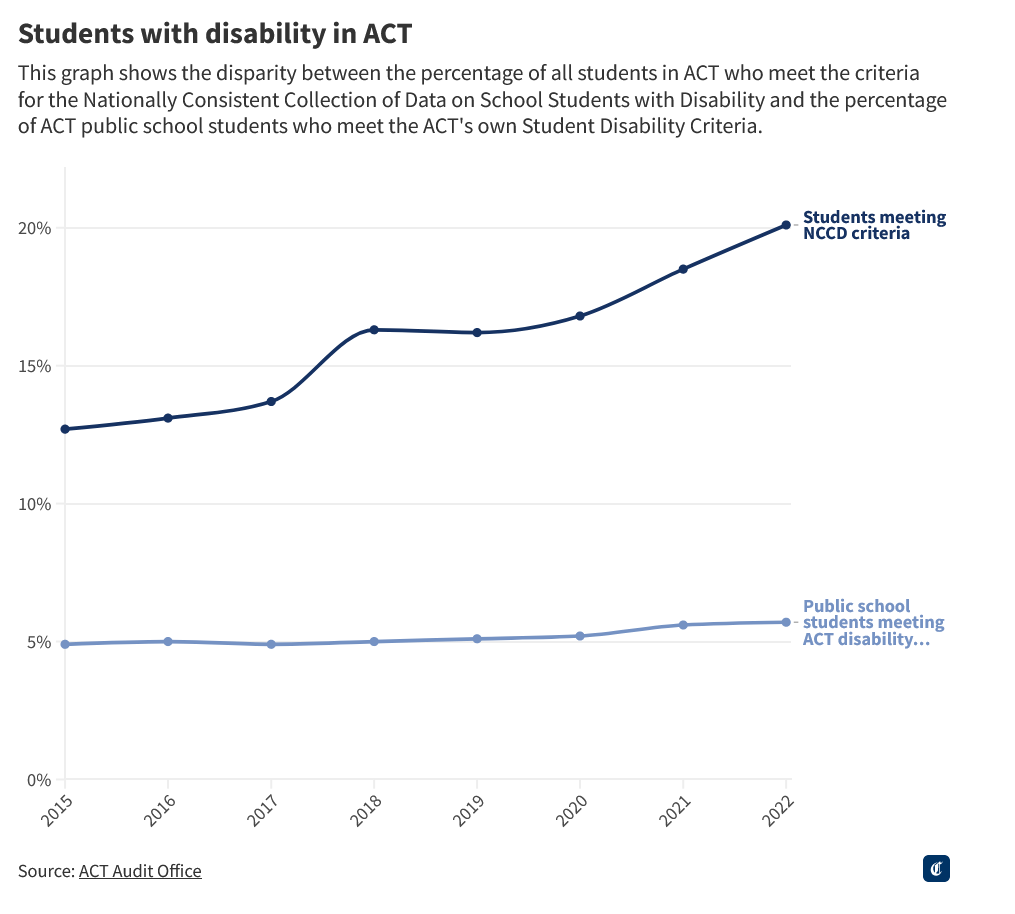
Training pathways to become a clinical psychologist are very difficult to get into with limited spots available, Ms Thomas said.
"The [university] programs themselves are not supported enough by the government, and they don't provide enough space and time and resources for enough people," she said.
Some assessors are only trained in one diagnosis, creating more delays and costs in getting multiple assessments, Ms Thomas said.
"Some people come to me and they've got a diagnosis of ADHD, but the young person clearly is autistic as well but the assessor it wasn't trained in autism," she said.
"They have to go on another waitlist somewhere else and start the process again."

Brianna Thomas is co-director of The Psych Hive, a psychology clinic with many clients with ASD and ADHD. Picture by Elesa Kurtz
This lack of specialists is an issue across the western world and is a problem of "straight supply and demand", autism expert Professor Andrew Whitehouse said.
"The greater awareness that we have around autism and ADHD has significantly increased the demand for diagnostic services," he said.
The NDIS does not fund ADHD or mild intellectual disabilities, undiagnosed development delays or learning disabilities.
Some parents seek a diagnosis of autism for their child in order to get support, which puts greater demand on autism assessors, Dr Whitehouse said.
"System reform needs to find a way that we can give these children the support they need without necessarily having to require a diagnostic label that may not be appropriate," he said.
Critical delays
Being diagnosed with autism at only two-years-old means Evanna Daniel will have access to critical early-interventions and support, giving her the best chance in life.
But she is only one of less than 0.5 per cent of Australians diagnosed with autism before five years of age.
Evanna uses an app on her iPad to communicate, pressing symbols which represent words.
"Because of that, she's able to communicate quite clearly now. If we were still waiting up in Canberra for an appointment, her communication will be delayed, and as a result, her behavior will be explosive," Ms Sugars said.
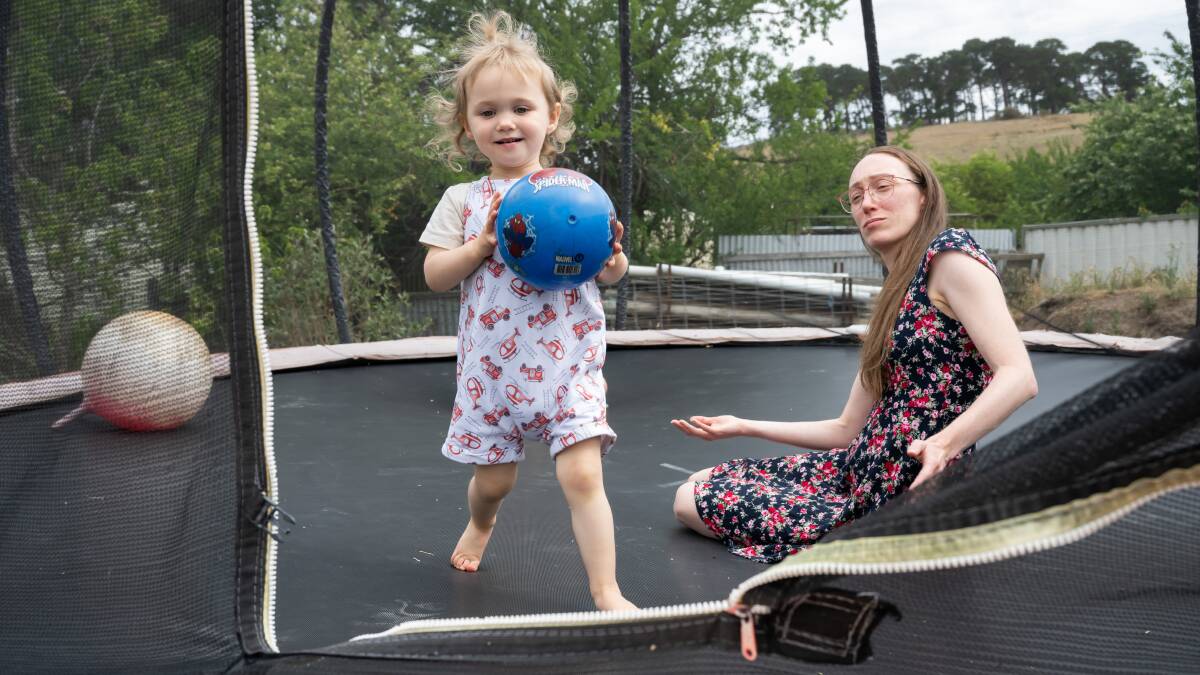
Rhi Sugars with two-year-old Evanna Daniel, who has been diagnosed with autism. Picture by Elesa Kurtz
Any delay in diagnosing a child with autism means "we miss opportunities to provide truly life-changing support for that individual" and help parents, Dr Whitehouse said.
"It is ideal to take advantage of those early brain building years where we can [so] kids receive the greatest gains," he said.
"The earlier we can identify kids ... the better the clinical and family outcomes are going to be."
Delays in accessing support for ADHD can create lifelong problems, expert and psychiatrist Professor Dave Coghill said.
He said people with ADHD are more likely to struggle at school and with socialisation, suffer family breakdowns, substance abuse issues or get in trouble with the law.
"Treating ADHD can improve peoples outcomes really considerably across education, across employment, across health, physical and mental health," he said.
"By not adequately recognising and supporting, we are exposing people to significant increased risks, and we expose the country to significant cost."
Deferred responsibility
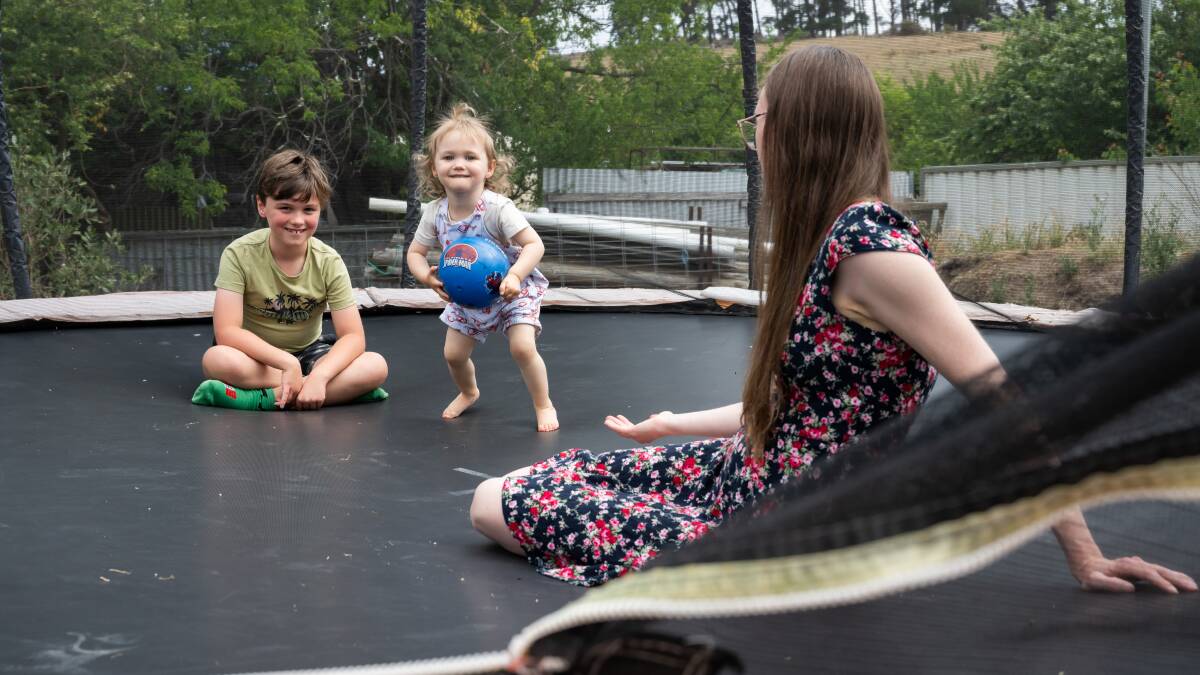
Rhi Sugars with two-year-old Evanna Daniel and eight-year-old Dallas Daniel, who have both been diagnosed with autism. Picture by Elesa Kurtz
Childhood health and disability support was primarily provided by states and territories before the introduction of the NDIS, Dr Whitehouse said.
The NDIS was rolled out nationally in 2016.
"[Now] the state health system do take up the responsibility of diagnosis, but with the NDIS, therapeutic support has most often fallen upon the NDIS," he said.
He said the NDIS was struggling to be financially sustainable, and there needed to be more systems available to support neurodivergent children and adults.
Possible solutions
A federal Senate inquiry into ADHD recommended more healthcare professionals, such as general practitioners and nurse practitioners, be trained to provide assessments.
Dr Coghill supports the recommendation, and said there needed to be more funding for assessments.
"I very much support the idea that we should be developing systems, not just of training, but also of reimbursement," he said.
"Not only is there are difficulty getting assessments through long waiting lists, but also at the moment it's extremely expensive, and many families where there is ADHD find that prohibitively expensive."
READ MORE:
- Opinion: Canberra's neurodivergent families deserve much better
- Why neurodivergent children are falling through the cracks
However, Dr Whitehouse said an accurate diagnosis required a high level of expertise.
"Autism in particular, is a really complex condition and requires a high level of expertise and experience to diagnose," he said.
"It might have unintended consequences with regards to the accuracy and expediency of diagnosis."
Dr Coghill said the Medicare benefits do not match the cost of assessments, so increasing those would help get more people diagnosed.
The Psych Hive is trying to support more clients by offering group sessions for different age groups and parents.